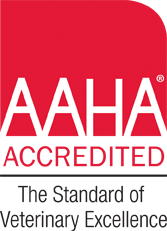
Leptospirosis is a disease that can jump from pets to people. Before a vaccine was developed more than 50 years ago, leptospirosis was a major killer of pets, particularly puppies and calves. Ambassador Animal Hospital in Columbia, SC, talks about how to protect your dog from leptospirosis, with help from your vet.
What Is Leptospirosis?
This disease is caused by a kind of bacteria called a spirochete. There is a whole family of over 230 species of spirochete that cause leptospirosis. The spirochetes live in water, mud, and other damp places. This makes the disease more likely to happen in warm, wet climates, like in South Carolina. The disease also spikes after natural disasters like floods and hurricanes.
What Are the Symptoms of Leptospirosis?
Symptoms are varied in dogs. They include fever, being more tired than usual, extreme reluctance to move, shivering, lack of appetite, swollen eyes, increased thirst, vomiting, and jaundice. Symptoms can progress into breathing problems, vomiting up blood, passing blood in the stool, or bleeding from the mouth. Fluid can quickly build up in the dog’s body, causing swollen legs, chest, and abdomen. If left untreated, dogs and puppies with leptospirosis die from kidney or liver failure.
Getting a Diagnosis
Since most symptoms of leptospirosis are similar to many other health conditions, it’s important to get your dog tested by a veterinarian to discover what is wrong. This way, the most effective treatments can be given. Time is of the essence when treating leptospirosis.
How Do People Get Leptospirosis?
People get leptospirosis the same way dogs and other animals do: by coming into contact with water containing urine from infected animals. Since some dogs get leptospirosis and show no symptoms, all dogs should be vaccinated so they do not produce urine that can get others sick.
Vaccine
Fortunately, there is a leptospirosis vaccine available for dogs and puppies from our vet. It’s considered a core vaccine in areas where leptospirosis is common. It can be administered separately, but is often administered in a combination vaccine called the DHLPP. It needs an annual booster.
Still Have Questions?
If you have further questions about protecting your dog from leptospirosis and live in the Columbia, SC, area, contact Ambassador Animal Hospital at (803) 787-3840 to make an appointment today.

